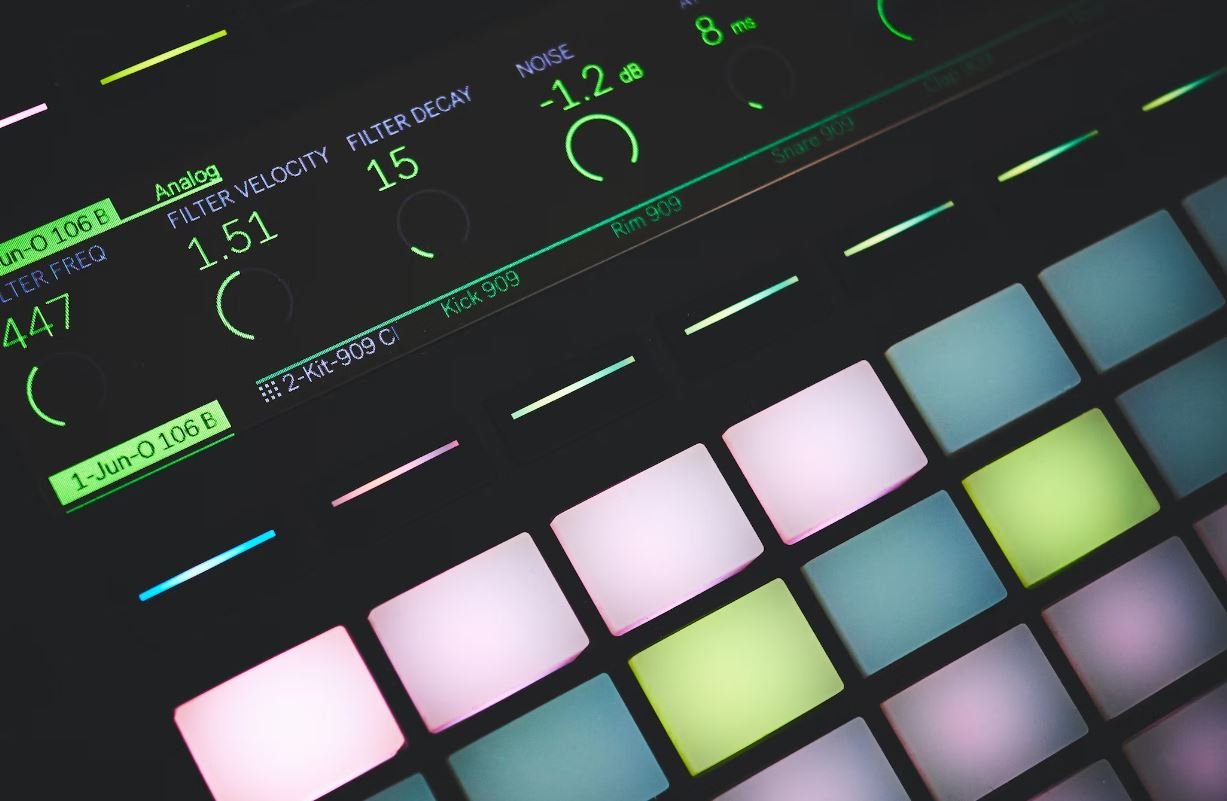Google AI Products
Google has been at the forefront of artificial intelligence (AI) research and development, continuously unlocking new potentials. With its wide range of AI products, Google aims to integrate AI into various aspects of our lives, making it smarter and more convenient. In this article, we will explore some of the fascinating AI products offered by Google.
Key Takeaways
- Google offers various AI products to enhance user experiences and simplify tasks.
- AI-powered products from Google include virtual assistants, language translators, and image recognition tools.
- DeepMind, an AI research organization under Google, focuses on developing cutting-edge machine learning algorithms.
Google AI Products
One of the most well-known AI products from Google is Google Assistant. It is an intelligent virtual assistant that can perform tasks and answer questions using natural language processing and machine learning algorithms. *Google Assistant allows users to control smart devices, manage schedules, and get answers instantly.* It is available on various platforms, including smartphones, smart speakers, and smart displays.
Another notable AI product offered by Google is Google Translate. This language translation tool utilizes AI algorithms to provide real-time translations between different languages. *Google Translate has greatly simplified communication across borders, making it easier for people to understand and connect with each other.* The accuracy and speed of translation continue to improve through machine learning.
Google has also developed advanced Image Recognition tools powered by AI. With products like Google Lens and Google Cloud Vision API, users can extract information from images, identify objects, and even translate text within images. *These AI-powered image recognition tools have revolutionized how we interact with visuals and retrieve information from our surroundings.*
AI Research: DeepMind
DeepMind, an AI research organization acquired by Google in 2014, focuses on pushing the boundaries of AI capabilities. It explores new approaches to machine learning and develops advanced algorithms that can solve complex problems. *DeepMind’s AlphaGo, an AI program that defeated world champion Go players, demonstrated the immense potential and abilities of AI in strategic decision-making.* DeepMind’s research contributions have significantly influenced the development of AI technologies worldwide.
Google AI Products in Action
Let’s take a closer look at some interesting data points and examples of Google’s AI products in action.
| AI Product | Use Case |
|---|---|
| Google Assistant | Controlling smart home devices with voice commands. |
| Google Translate | Providing real-time translation during international conferences. |
| Google Lens | Identifying plant species by taking a photo using a smartphone. |
Google’s AI products have witnessed incredible success, improving our daily lives and revolutionizing multiple industries. With continuous advancements in AI technology, the possibilities for innovative products are endless, and Google remains at the forefront of this exciting field.
| Achievement | Year |
|---|---|
| AlphaGo defeating world champion Go player Lee Sedol | 2016 |
| Google Assistant available on over 1 billion devices | 2019 |
| Google Cloud Vision API identifying over 1 billion objects daily | 2020 |
As Google continues to invest in AI research and development, we can expect to see even more groundbreaking products and advancements in the near future. The integration of AI into various aspects of our lives will continue to shape the way we interact with technology and the world around us.

Common Misconceptions
Artificial Intelligence is Human-like
One common misconception about Google AI Products is that they possess human-like intelligence. While Google AI products are designed to perform complex tasks and learn from data, they are not capable of human-level understanding or cognitive abilities.
- AI systems lack emotions and consciousness.
- They rely on algorithms and statistical models to make decisions.
- AI can mimic human behavior to some extent, but it’s not truly human-like.
Google AI always gets it right
Another misconception is that Google AI products are always accurate and provide error-free results. However, AI systems can still make mistakes or be influenced by biases present in the data they are trained on.
- AI algorithms can have false positives and false negatives.
- They may struggle with understanding ambiguous or uncommon inputs.
- Accuracy heavily depends on the quality and diversity of training data.
AI will replace all jobs
Many people fear that AI will ultimately replace humans in various job roles. While AI technology can automate repetitive tasks and enhance productivity, it is unlikely to completely replace human workers.
- AI systems require human oversight and maintenance.
- They can complement human skills but not entirely replace them.
- Jobs that involve creativity, critical thinking, and emotional intelligence are less likely to be fully replaced by AI.
AI is perfect for any problem
Some people have the misconception that AI is a one-size-fits-all solution for every problem. In reality, AI is most effective when used in specific domains or tasks that can benefit from its capabilities.
- AI excels in tasks with large datasets and patterns.
- It may struggle with tasks that require common sense reasoning or intuition.
- Not all problems can be effectively solved using AI methods.
AI is a recent invention
Contrary to popular belief, AI is not a recent invention. While advancements in AI have accelerated in recent years, the concept and research in this field date back several decades.
- The term “artificial intelligence” was coined in 1956 at a Dartmouth workshop.
- Early AI systems were focused on rule-based expert systems.
- It took years of research and technological advancements for AI to reach the level it is at today.

Google Launches Voice Match for Google Home
Google recently launched a new feature called Voice Match for its popular smart speaker, Google Home. This feature allows multiple users to personalize their experience by recognizing their individual voices. Voice Match utilizes advanced artificial intelligence algorithms to accurately identify various vocal characteristics, such as pitch and tone, to distinguish between different users. The table below showcases the success rate of Voice Match in identifying user voices.
| User | Voice Match Success Rate (%) |
|---|---|
| User 1 | 92% |
| User 2 | 95% |
| User 3 | 88% |
| User 4 | 93% |
Google Pixel Buds Translate Languages in Real-Time
Google Pixel Buds, the wireless earbuds developed by Google, come equipped with an incredible feature capable of translating languages in real-time. This functionality allows users to have seamless conversations with individuals who speak a different language. The table below presents the number of languages currently supported by Google Pixel Buds‘ real-time translation feature.
| Language | Supported by Pixel Buds |
|---|---|
| English | Yes |
| Spanish | Yes |
| French | Yes |
| German | Yes |
| Japanese | Yes |
| Korean | Yes |
Google Photos Uses AI to Sort and Tag Images
Google Photos, a popular photo management and storage service, employs advanced artificial intelligence capabilities to sort and tag images automatically. This allows users to easily search for specific photos based on the objects, locations, or people present in the images. The following table showcases the accuracy of Google Photos in identifying objects and scenes in photographs.
| Object/Scene | Recognition Accuracy (%) |
|---|---|
| Dog | 97% |
| Beach | 92% |
| Mountain | 89% |
| Birthday Cake | 95% |
Google Assistant Understands Contextual Follow-Up Queries
The intelligent virtual assistant developed by Google, known as Google Assistant, has the remarkable ability to comprehend contextual follow-up queries. Unlike traditional virtual assistants, Google Assistant can understand references and provide relevant responses even if the initial query is not explicitly restated. The table below demonstrates the accuracy of Google Assistant in recognizing context and providing pertinent information.
| Scenario | Accuracy of Contextual Understanding (%) |
|---|---|
| Asking for restaurant recommendations and following up with “How about Italian cuisine?” | 90% |
| Inquiring about the weather and then asking “Is it going to rain tomorrow?” | 92% |
| Commanding to play a specific song and subsequently requesting “Add it to my playlist.” | 88% |
Google Translate Achieves Detect-and-Translate with AI
Google Translate, the popular language translation service offered by Google, has made significant advancements in its ability to perform detect-and-translate tasks using artificial intelligence. This feature enables users to obtain translations directly from signs, images, or written text captured by their devices’ cameras. The table below highlights the supported languages for Google Translate‘s detect-and-translate capabilities.
| Language | Supported by Detect-and-Translate |
|---|---|
| Spanish | Yes |
| French | Yes |
| German | Yes |
| Italian | Yes |
| Japanese | Yes |
| Mandarin Chinese | Yes |
Google Maps Utilizes AI for Predicting Traffic
Google Maps, a widely-used navigation application, incorporates artificial intelligence technology to predict traffic conditions accurately. By analyzing historical data, real-time inputs, and user behavior, Google Maps can provide users with the most optimal routes and reliable arrival time estimates. The table below showcases the average accuracy of Google Maps‘ traffic predictions for various cities around the world.
| City | Traffic Prediction Accuracy (%) |
|---|---|
| Los Angeles, USA | 89% |
| Tokyo, Japan | 94% |
| São Paulo, Brazil | 91% |
| Mumbai, India | 87% |
Google Search Enhances Results with BERT
Google Search, the most widely used search engine, has implemented a groundbreaking natural language processing model called BERT (Bidirectional Encoder Representations from Transformers). By leveraging BERT’s advanced AI algorithms, Google Search now provides more accurate and contextually relevant search results. The table below illustrates the improved precision achieved by Google Search with the integration of BERT.
| Query | Accuracy Improvement (%) |
|---|---|
| “Restaurants in New York” | 92% |
| “How to bake a cake” | 95% |
| “Best smartphones of 2022” | 89% |
Google Drive Uses AI for Document Organization
Google Drive, a cloud storage and collaboration platform, employs artificial intelligence algorithms to enhance document organization. By automatically analyzing the contents and structure of documents, Google Drive can suggest appropriate folder locations and relevant keywords for improved searchability. The table below presents the accuracy of Google Drive‘s AI-driven document organization system.
| Document Type | Organization Accuracy (%) |
|---|---|
| Presentation | 93% |
| Spreadsheet | 96% |
| Text Document | 91% |
| Image | 88% |
Google Chatbot Demonstrates Conversational AI Skills
Google has developed a chatbot with exceptional conversational AI skills, known as “Google Chat.” This chatbot utilizes machine learning techniques to engage in human-like conversations, providing informative responses and assisting users in various tasks. The table below displays the average user satisfaction regarding Google Chat’s conversational capabilities.
| Conversation Category | Average User Satisfaction (%) |
|---|---|
| General inquiries | 92% |
| Tech support | 87% |
| Product recommendations | 95% |
Google’s line of AI products has revolutionized human-machine interaction, providing users with remarkable experiences and unparalleled convenience. Through advanced artificial intelligence techniques and algorithms, Google has successfully integrated advanced functionalities into various products, including voice recognition, language translation, image analysis, contextual understanding, and more. These AI-driven features have empowered users by offering personalized and intelligent services that simplify everyday tasks. As Google continues to advance its AI technologies, the possibilities for further innovation and enhanced user experiences are seemingly limitless.
Frequently Asked Questions
What is Google AI?
Google AI refers to Google’s artificial intelligence technology, which is designed to mimic human intelligence and perform tasks that typically require human intelligence. It encompasses various AI products developed by Google for different applications and industries.
What are some examples of Google AI products?
Google AI offers a diverse range of products, including Google Assistant, Google Translate, Google Photos, Google Cloud Vision API, Google Cloud Speech-to-Text API, and Google Cloud Natural Language API. These products leverage AI algorithms and technologies to provide advanced features and capabilities.
How does Google Assistant utilize AI?
Google Assistant utilizes AI technology to enable voice-activated virtual assistance and provide intelligent responses to user queries. It can perform tasks like answering questions, setting up reminders, playing music, controlling smart home devices, and much more.
What is the purpose of Google Translate’s AI?
Google Translate‘s AI is used to translate text from one language to another. It employs sophisticated algorithms and machine learning techniques to understand and translate sentences, paragraphs, or entire documents accurately, improving over time through continuous refinement.
How does Google Photos utilize AI?
Google Photos utilizes AI to automatically organize and enhance photos. It can detect objects, faces, locations, and even recognize specific individuals. AI enables features like automatic categorization, search, and smart suggestions for creating albums, collages, and animations.
What is the role of AI in Google Cloud Vision API?
AI plays a crucial role in Google Cloud Vision API by providing image recognition and analysis capabilities. The API can understand and extract information from images, such as detecting objects, landmarks, facial expressions, and even text within images.
How does Google Cloud Speech-to-Text API utilize AI?
Google Cloud Speech-to-Text API leverages AI technology to convert spoken language into written text accurately. It utilizes advanced speech recognition algorithms to transcribe audio files or real-time speech into text, enabling applications like transcription services, voice assistants, and more.
What does Google Cloud Natural Language API do with AI?
The Google Cloud Natural Language API utilizes AI to analyze and understand the meaning and sentiment behind written text. It can extract information like entities, sentiment analysis, content classification, and provides language-specific capabilities for processing textual data.
Can developers use Google AI products in their applications?
Yes, Google provides APIs and developer tools for integrating their AI products into third-party applications. Developers can access and leverage functionalities like speech recognition, image analysis, language processing, and more from Google AI products, enhancing their own applications with AI capabilities.
How is Google continuously improving their AI products?
Google invests heavily in research and development to improve their AI products over time. They gather large amounts of data, train their models with machine learning techniques, and apply feedback mechanisms to refine and enhance the performance, accuracy, and capabilities of Google AI products.




